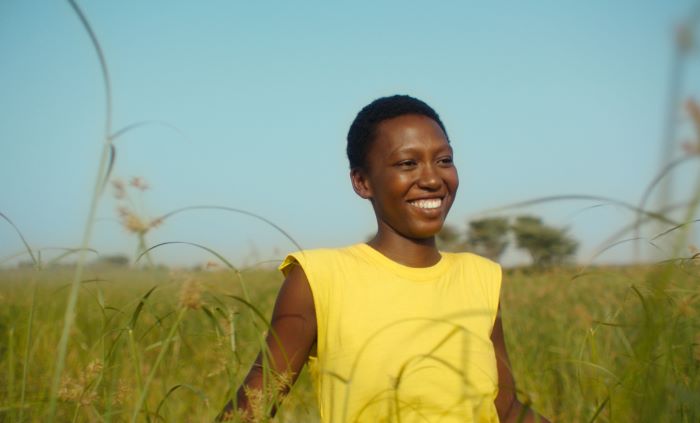Presented by Film at Lincoln Center and Unifrance, the 29th Rendezvous with French Cinema festival offers an eclectic selection and provides a glimpse into what is cinematically happening in France. (In some cases, the term “French Cinema” can be claimed by other countries too, because of the benefits from French funding.) One could argue that the series couldn’t occur at a better time, when a multi-award-winning international hit like Anatomy of a Fall and a critical darling like The Taste of Things are enjoying success during their U.S. theatrical runs.
If some moviegoers—and some proudly populist culture commentators—often misperceive foreign offerings as too refined or obscure for their commercial consumption, then Just the Two of Us might stand out as a potentially accessible movie for all tastes. This seductive marital drama nods to the mundane and exciting pleasures of the nearly extinct psycho-erotic thrillers of the late 1980s and early ‘90s. Director Valérie Donzelli adapted Éric Reindhart’s novel L’Amour et les Forêts with Audrey Diwan (director of Happening), and they breathe life into a lush romance that progressively transforms into a threatening portrait of control and abuse.
In the aftermath of a recent romantic disappointment, Blanche (Virginie Efira) finds the perfect romantic fulfillment when she meets an old acquaintance, the sexy and charming Grégoire (Melvil Poupaud), at a party. Their intimate, magnetic conversation leads to a passionate romance that quickly turns them into devoted spouses. Blanche leaves everything behind (her job, family, hometown) to move across the country for her husband’s work, despite objections from her twin sister. (Yes, Efira plays a dual role here, adding a playful layer.)
What follows is a portrayal of years that progressively reveals the true nature of the jealous and possessive Grégoire, who undermines the marriage with each attempt to exert power and subjugation to retain Blanche. Donzelli constructs an intoxicating puzzle of memories (a story narrated from an initially unspecified future) where we fear every step of our protagonist and celebrate her progressive rebellions to find the way back out of the labyrinth of fantasies that once confined her. While the film has plot holes capable to raise eyebrows (the allegedly strong connection with Blanche’s twin sister is pushed aside until it is almost too late to matter), the absorbing performances will keep you at the edge of your seat.
Far from France, Red Island explores the past of the French military presence in independent Madagascar of the early 1970s, with an ambiguous and almost hallucinating look at the specters of colonialism—it could well be spiritually linked to recent films like Pacifiction (2021) and Disco Boy (2023). For director Robin Campillo, it’s a semi-autobiographical account of his childhood and an ambitious follow-up to his most acclaimed work (BPM) Beats Per Minute. The French filmmaker takes advantage of his uncompromising artistic freedom to craft a tale both political and personal.
Thomas (Charlie Vauselle) is the third and youngest child of a family living on an army base—the French have come to the aid of the young government to combat a rebellion. An avid reader, Charlie’s accustomed to losing himself in the fantasies of the real-life “Fantomette” comics. The playful reenactments of the comic heroine’s adventures come to life on screen and occupy a significant portion of the film. (These colorful slapstick vignettes look more appealing than any superhero live-action released by Hollywood last year.) Back to reality, the military camp is a cloistered world trying to keep a portion of France alive in a country emerging from colonialism.
Compared to the child’s imagination, Charlie’s surrounding world is much stranger and alienating, a sentiment that Campillo visually expresses by reconstructing a tranquil mirage of French families acting like masters of a foreign land where parties, church visits, and other community activities barely hint at the country’s discomforts and the pernicious legacy of what colonization leaves behind. When the focus finally shifts to the reality of the formerly colonized and the freedom they hope to gain, it feels like an extended epilogue. One could accuse it of being too little and too late. However, Campillo’s memory piece perfectly captures the enchanting and addictive nature of being part of a secluded and closed world, where complicity and unquestioning silence keep the most beautiful fantasies intact.
Meanwhile, a series highlight that can also be considered the biggest surprise of the festival is not specifically a French film, but rather from Senegal. With her remarkable debut, Ramata-Toulaye Sy is a director not to be overlooked. Banel & Adama is a cinematic experience of immense narrative and visual power that invites viewers to approach it on its own terms. It’s a myth loaded with romanticism and a love story. It’s also the tale of a lone rebel, Banel (Khady Mane).
Selfish, disobedient, and capricious, Banel is what any community would consider “bad news” or a “curse,” if she were not married to a respected figure in the community, Adama (Mamadou Diallo), a man destined by lineage to become the village leader. Adama, however, rejects the role the other villagers believe is his destiny. He aligns his desires with those of Banel, previously his brother’s widow, whom he married out of tradition. However, the two young people loved each other from before they had wed, when such feelings were forbidden. Now their shared desire is a life outside the village, with a home of their own, separated from their respective families. But to what extent can the will of a woman without a voice in a place that grants her no greater destiny than that of a wife be fulfilled?
Contrary to what the title suggests, this is a fascinating character study of a complex and unpredictable female protagonist who, if she cannot change her fate, can at least become the sole author of her misfortunes—she’s the only one who is conscious of the value of her individuality. Heightened by unforgettable images (pay attention to the cinematography by Amine Berrada) and an aura of mysticism with the texture of dreams and legends, Banel & Adama leaves you in a state of wonder and a genuine trance.
Banel & Adama will begin its U.S. theatrical run on June 7.









Leave A Comment